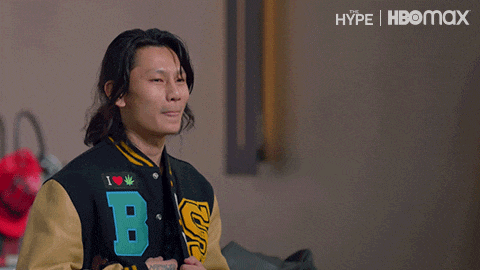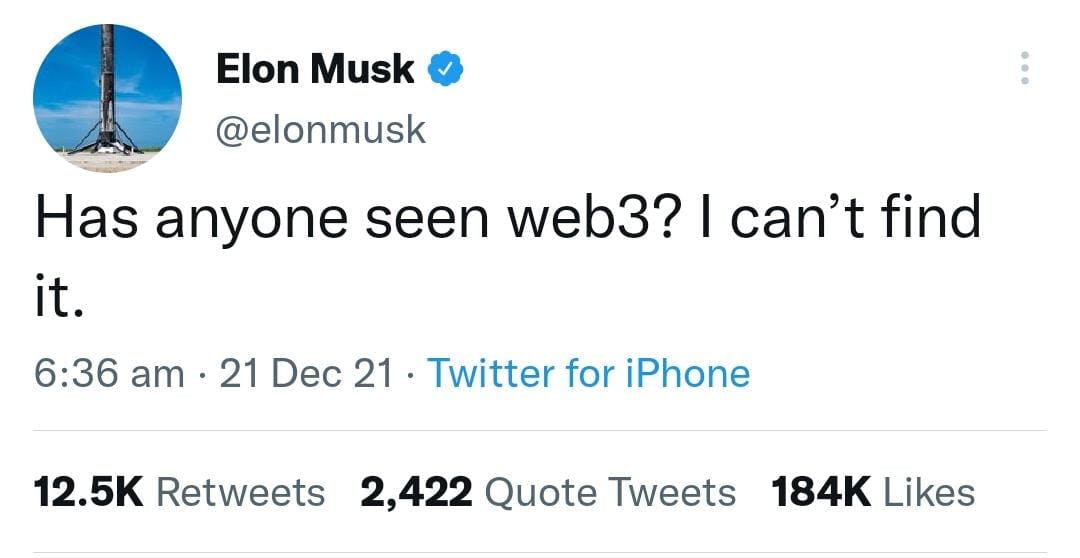Introduction
You've probably been hearing a lot about Web3, because I know I have. Literally everyone is talking about Web3, cryptocurrency, and the all nine yards and you're probably wondering if it's the next big thing since sliced bread and titanic because it certainly feels that way to me. At this point, you're probably wondering what exactly is Web3, how does it affect you, the society, and the economy for everyone in the globe to be going crazy over it.
Fear not, I got you.

What Is Web3?
The term "Web3" came about in 2014 by Ethereum co-founder Gavin Wood but it wasn't until 2021 before cryptocurrency enthusiasts, large technology companies and the rest of the world took interest in the idea of what Web3 is and what it poses to be.
Web3 is the third generation of the internet that uses the blockchain, and other concepts like decentralization, permission-less, etc. Web3 was originally called the Semantic Web by World Wide Web inventor Tim Berners-Lee, and the aim was it being more autonomous, intelligent, and create open interest. In my opinion, Web3 is Web2(our current internet generation) with a whole lot of "pizazz". And by pizazz, I mean earlier mentioned decentralization, which in my opinion is probably the major difference.
In as much as a huge chunk of the globe is raving about Web3, there is still quite a number of skeptics because I mean sliced bread isn't all that anymore and the titanic sank not even up to 48 hours after it sailed. Many are of the opinion that it's an hypothetical future and not a tangible substance that they can see or touch. Even Elon Musk asked if anyone has actually seen Web3.

The internet has gone through major changes over the decades, there's no controversy nor doubt about that, from Web1(1991-2004) which was the first web, to Web2(2004-till date) which is the current generation of the internet. Web1 was where you could find web developers, who were the producers, and content consumers. Indeed a very simple, beautiful, mutually-sustainable symbiosis.
Despite the hype circulating about Web3, it still needs a lot of time and fleshing out for it to become an accepted reality. However, there are some things that we most definitely can agree on. It is:
Decentralized: Web3 will be owned by the people, and developed for the people.
Permission-less: Every human being can get involved with a deconstructing of the restricting mechanisms of Web1 and Web2.
With built-in payments: The boundless, frictionless movement of money with an emphasis on peer-to-peer trading.
As Web3 gains more traction in the technology sector, the question is increasingly asked, as it has been with each prior cycle of digital innovation "How will it benefit business and IT?". Because, that's the sector that will get affected the most either positively or negatively.
The Benefits Of Web3
The Web3 network is an open service to every individual, you cannot be denied access to it.
You cannot be blocked — for example, Facebook is restricted in certain countries. No censorship is applied.
Tokens are used as secure payments.
You don't have to worry about your data being stolen, Web3 payments and Web3 apps do not require personal data.
Web3 servers won't go down, unlike other internet servers.
Web3 allows artists and creators to own the platform they use and their content, giving them full credit and monetization for their work.
Data Ownership
In a Web3-world, the promise is a network where we have full control of our data. Big names (Google, Facebook, YouTube, etc.) will not be able to use or store anyone's data in Web3. Ads that target users will be a thing of the past. You control your digital assets, personal information and exchanges through digital tokens that are unique to you. Everyone will be able to access information and their privacy will be protected. Sounds like a wonderful dream to me.
Equality
Web3 offers equality among all internet users, as opposed to being focused on internet giants. It doesn't replace Web2 but simply moves away from its authoritative nature, being described as a more liberal approach to the web. Think of it as a country gaining its independence from its colonisers, Web3 offers its users total control over their data and privacy, which will make companies transparent.
Is Web3 The Next Big Thing?
With all the innovations that frequently happen in the world, it can be quite challenging to differentiate between the "actual next big thing" from the noise when it comes to very controversial subjects like cryptocurrency, blockchain, or NFTs.
There's obviously no clear-cut side of the fence to sit on, as Web3 could provide a myriad of benefits as well as potential negatives. However, most analysts agree that the web is an evolving concept, and some aspects of Web3 will naturally seep into the current web architecture. From this perspective, society will have to adjust for better or for worse.
After reading the terms and conditions of Tiktok, I personally can't wait for the restrictions of Web2 to become a thing of the past and Web3 to be fully accepted all over the world.